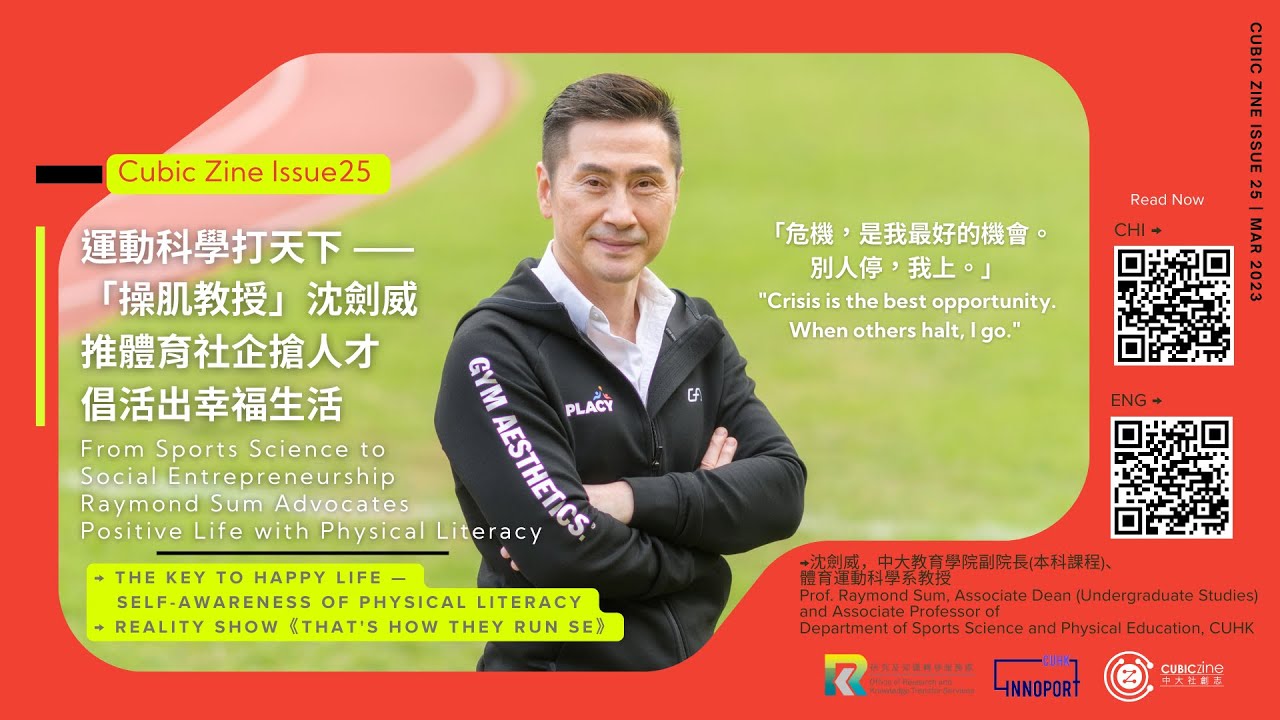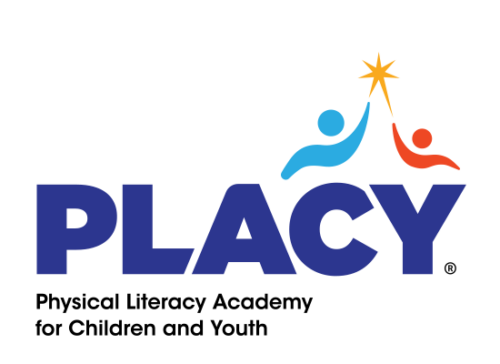To Raymond, sports are his inspiration and motivation. He gets up at 7am every morning to work out. Steadiness is the requisite of his social enterprise PLACY — Physical Literacy Academy for Children and Youth, which promotes physical and mental health by self-management and care at an early age.
Raymond received muscle training with gymnastics at teenage, when he also participated in a variety of sports such as folk dance, basketball and athletics. At that time there was not any degree programme in Hong Kong in physical education. He went to National Taiwan Normal University to study physical education, and pursued a master’s degree in Springfield College of US, the birthplace of basketball. He then returned to Hong Kong to start teaching. After a few years of teaching in secondary school and then in CUHK, Raymond received his PhD from the University of Leicester of UK in 2004.
“My research interest is Physical Literacy. Physical literacy means mastering physical fitness, learning sports knowledge, and building confidence and motivation from a young age so that as you grow up, you will also pay attention to your physical health, socialise better and maintain good mental state. It is actually an important process of life.”
Inspirations from the new diving champion
The pandemic has not enervated Raymond’s passion in teaching and research. “If I take a step forward while others are in a halt, I actually proceed way further. I have mustered a lot of ideas tacitly over the last 3 years.”
“During the 7-day quarantine upon returning from a trip to Taiwan, I watched Tokyo Olympic Games broadcast as I worked in the hotel room. I was thrilled to witness this on the TV screen — Quan Hongchan, who was selected to China’s Diving Team at the tender age of 13, won the competition with almost perfect scores. She grew up in a rural village and was recruited for diving training when she was still very young. In merely 4 years she could master complex and difficult feats for world championship. I hence ponder, how about schoolchildren in Hong Kong? How to build up a standardised physical fitness test set?”
Raymond at once discussed related professional propositions with his colleagues in Physical Education Unit, and conceived a business plan with CUHK ORKTS. After collecting feedback from principals of primary and secondary schools, he started writing the proposal in September 2021, and in April 2022 he was awarded the CUHK Sustainable Knowledge Transfer Project Fund (S-KPF) to set up the social enterprise PLACY.
Prof Sum is grateful for the support of CUHK management , Department of Sports Science and Physical Education and Physical Education Unit, as well as the input from ORKTS. “The ORKTS team is familiar with the market and assists us to enhance the business model and budget planning out-and-out.”
Science of physical education and sports
“Our team has heightened the contents of Long Term Athlete Development Model (LTAD) and sports skill assessment to examine the physical development of adolescents at different stages, such as cardiorespiratory endurance, flexibility, balance and coordination.”
Good athletes always know the right moment to make the right decision. Raymond explicates, “Team sports require keen judgment on actions such as shooting, passing and scoring. We found that people with these qualities often had them developed from an early age.”
“This is what lacks in sports training in Hong Kong. Schools seldom systematically measure children’s basic motor abilities during their early developmental stages. In comparison with people in other Asian countries, Hong Kong people have relatively weak upper limb abilities.
Although schoolchildren are often seen tossing bean bags, throwing training is absent in PE class. Whereas in China, Japan, South Korea and Taiwan, sports courses for youths such as softball, baseball, badminton and javelin involve systematic training.”
Is it normal for young children to have low athletic ability? “Basic sports abilities are essential in daily life, such as dodging in case of accident. Physical fitness assessment is thus very important. It is of course good to discover students with good abilities early, but we should not overlook students who are slow in development, and refer students with special needs to relevant institutions as soon as possible.”
“Most university students fell short of the tests. Take myself as an example, I like playing and exploring around when I was a kid, and developed these skills through play and activities in daily life. Today we aim at doing so scientifically. It is importance to provide incremental training to young people, and encourage schoolchildren to master their physical literacy and basic sports skills from a young age.”
By Cubic Zine Issue 25, 2 March 2023

.png)


